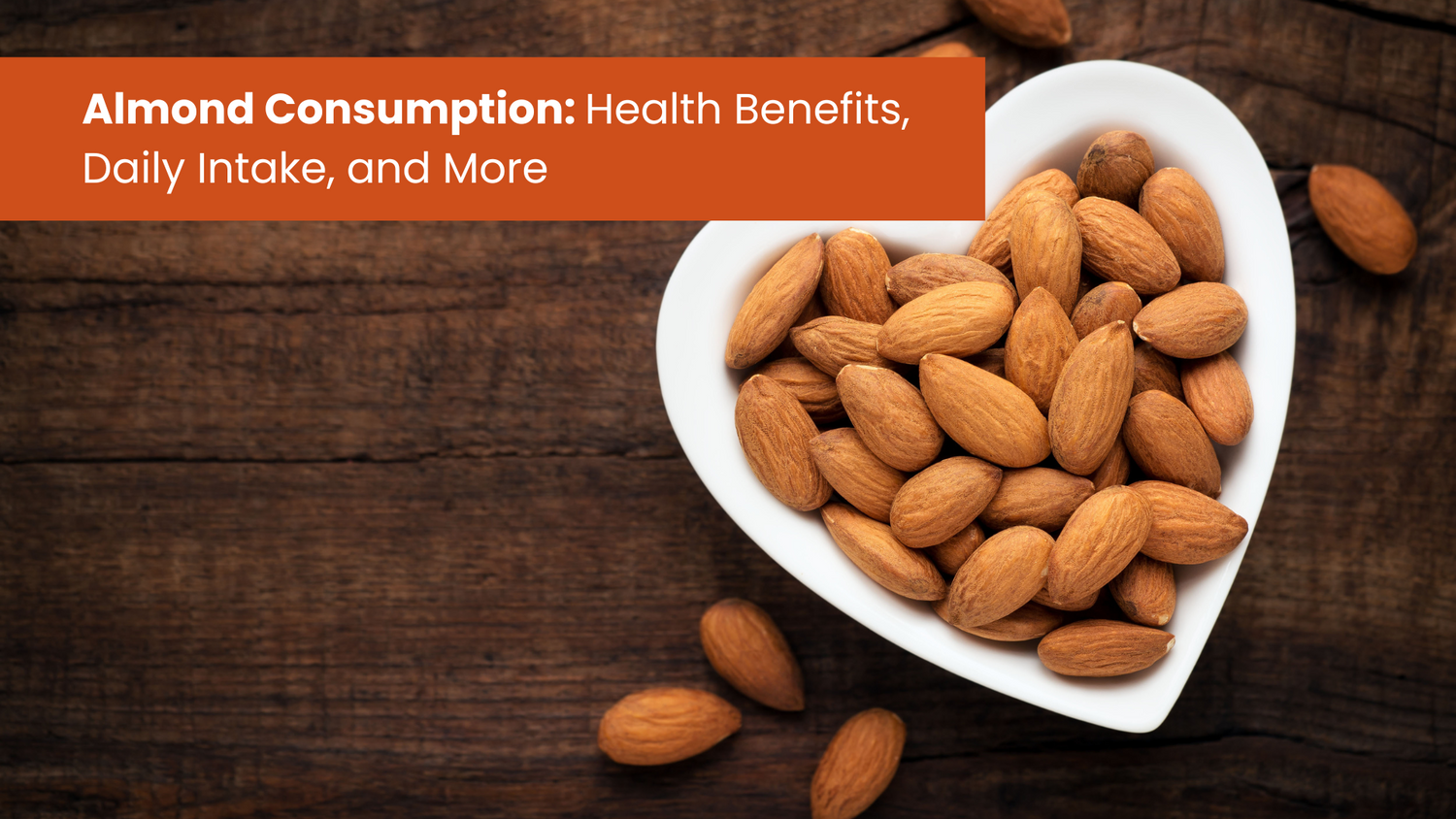You can reap the benefits of almonds by consuming the ideal daily intake of 30g, or about 23 almonds, which provides 162 calories, 6.1g carbs, and 3.4g fiber, while being high in Vitamin E and magnesium. This daily dose can improve digestion, support heart health, aid in weight management, and provide protein for muscle repair. Just be mindful of potential drawbacks like allergic reactions, choking hazards, and digestive issues if you over consume. By incorporating almonds into your diet in moderation, you'll be taking a step towards better overall health - and there's more to explore about how you can make the most of this nutritious snack.
How Many Almonds a Day Are Enough for an Adult?
How Many Almonds a Day Are Enough for an Adult?
The ideal daily intake of almonds is 30g, which is about 23 almonds. Eating more than this can lead to consuming too many calories, which can affect weight management goals.
In India, people often eat 2-5 soaked almonds a day for health benefits, such as improving digestion and balancing body heat. Almonds can be added to oatmeal or yogurt, or used as a crunchy topping for salads.
There are many types of almonds, so it's easy to find one that suits your taste. Whether you like sweet or savory, there's an almond variety that can fit into your daily diet.
Nutrition Chart
Nutrition Chart
Almonds are a great snack option, providing 165 calories and 6g of protein in just 1-1.5 ounces (20-23 nuts). They can be used in many recipes, from savory dishes to sweet treats.
Almonds offer numerous health benefits, but it's crucial to consume them in moderation. Excessive consumption can lead to weight gain and digestive issues. By being mindful of portion sizes, one can reap the rewards of this nutritious snack.
When storing almonds, it's essential to keep them fresh to preserve their nutritional benefits. They can be stored in an airtight container in the refrigerator for up to six months or frozen for up to a year.
Nutritional Values
Nutritional Values
One ounce of almonds, which is about 23 nuts, has 162 calories, 6.1g of carbohydrates, 3.4g of fiber, and 1.1g of sugar. It also contains a lot of Vitamin E and magnesium.
Almond Varieties
There are many types of almonds, each with its own unique taste and texture. Some almonds are sweet and crunchy, while others are smoky and savory. This means there's an almond variety to suit every taste bud.
Cooking with Almonds
Almonds can be added to many dishes, such as salads, stir-fries, and baked goods. They're a great ingredient to experiment with when cooking.
Health Benefits
Almonds are very nutritious and an excellent addition to your diet. They're a good source of healthy fats, protein, and fiber, making them a great snack option for those trying to manage their weight or support heart health. Eating almonds regularly can provide many health benefits.
Health Benefits
Health Benefits of Almonds
Almonds are rich in nutrients, which lead to many health benefits. One of the most significant advantages of eating almonds is that they improve digestion. The fiber in almonds helps regulate bowel movements, preventing constipation and promoting a healthy gut.
Almonds are also good for heart health. They lower bad cholesterol levels and reduce the risk of heart disease. Additionally, almonds help with weight management by reducing calorie intake and increasing feelings of fullness.
Almonds are a great source of protein, which aids in muscle repair and growth. Eating almonds can also increase the good bacteria in the gut, leading to overall health improvement.
With so many almond varieties to choose from, it's easy to incorporate them into daily meals through delicious recipes.
Risks Associated with Almonds
Risks Associated with Almonds
Almonds offer many health benefits, but they can also pose some risks if not consumed carefully.
Almond Allergies Almonds can cause severe allergic reactions, including anaphylaxis, in people with nut allergies. If you have a nut allergy, don't eat almonds. If you experience symptoms like hives, itching, or difficulty breathing after eating almonds, consult a doctor.
Choking Hazards Whole almonds can be a choking hazard, especially for young children. To avoid this risk, cut or slice almonds before serving them to children, and supervise them while they eat.
Digestive Issues Eating too many almonds can cause digestive problems like bloating and gas. To avoid these issues, eat almonds in moderation. Start with a small serving size to test your tolerance.
Weight Gain Almonds are high in calories, and eating too many can lead to weight gain. To maintain a healthy weight, monitor your daily calorie intake and balance almond consumption with other nutrient-dense foods.
Conclusion
Incorporating Krishival almonds into daily diet can have a significant impact on overall health and wellbeing. By consuming 23 almonds per day, individuals can improve their digestion, heart health, and weight management.
Krishival almonds can be added to favorite recipes such as salads, smoothies, or homemade granola to get the most out of them. It's essential to store almonds in an airtight container in the refrigerator or freezer to maintain their nutritional value and freshness.
Choosing high-quality Krishival almonds guarantees the best possible nutrition. With premium quality nuts, individuals can trust that they're fueling their body with the best.










